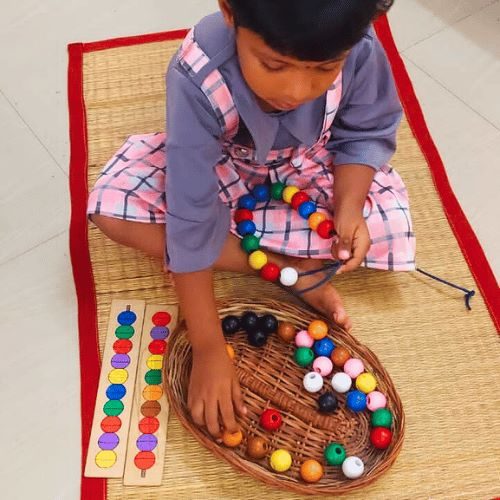Montessori Toddler
Chisel Montessori Toddler Program
24 - 30 months




The early years are a time of wonder and exploration, shaping a child's future. Understanding the profound importance of this stage, we provide a nurturing haven for our toddlers, offering them a safe and supportive environment where they can thrive. During the enchanting phase of early childhood, children possess an extraordinary gift for effortlessly absorbing information and assimilating their surroundings. Our specially crafted Montessori Toddler environment is thoughtfully designed to nurture their innate thirst for learning. This remarkable period, known as the absorbent mind, characterizes a child's remarkable ability to effortlessly internalize information from their environment and experiences, akin to flexing their own mental muscles. This inherent capability begins from the very moment of birth and continues to flourish until approximately the age of six.
In our Chisel Montessori Toddler Program, children are given the freedom to care for themselves, fostering independence and self-confidence. Our caring adults act as mentors, working side by side with the children to demonstrate various tasks. As the children grow, they are encouraged to explore independently, observe their peers, and express their boundless curiosity and creativity.




The key lessons learned at this stage are grace, courtesy, care for oneself and others, patience, and precise vocabulary for communicating wants and needs. Improving emotional intelligence becomes essential, as it enables individuals to navigate complex social dynamics and respond appropriately to various situations. Lastly, practicing gratitude and expressing appreciation for others' contributions encourages a positive and uplifting atmosphere, strengthening relationships and promoting a sense of interconnectedness.
In addition to developing emotional intelligence, it is important to involve children in meaningful, age-appropriate activities that engage their hands. These activities include tasks such as lifting and carrying, buttoning, pouring, rolling, folding, preparing food, and setting the table. By actively participating in these activities, children can cultivate a sense of competence and accomplishment in their daily life tasks. These experiences contribute to their overall development, enabling them to acquire essential life skills.
